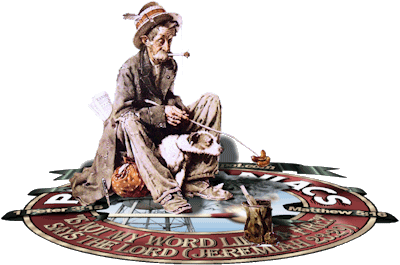by Phil Johnson


ome of the comments and e-mails I received after
Friday's post basically said things like this:
"I am still not convinced that we can ascribe all the divine attributes of God to Christ when He was on this earth." Phrases like
"I'm skeptical. . ." "You might be able to finesse it. . ." "You might think twice about it. . ." and,
"The solution you guys are working with. . ." seemed to imply that one or more of our commenters may have thought I was floating experimental or hypothetical ideas about the deity and Incarnation of Christ.
In the first place, I wouldn't do that. In the second place, I don't recommend that approach to
students of doctrine—much less aspiring
teachers. In the third place, the question of whether Jesus was dispossessed of divine attributes in order to become human is not something I would ever propose for
debate.
The problem with all kenotic theories is very simple to understand: if Christ divested himself of any essential attribute of God, then by definition He shed His deity. That, of course, is the kind of "problem" liberals and postmodernists are quite happy to take on board, but Christians concerned about orthodoxy have never taken such a blithe approach to the Incarnation.

Of course, the question of
how full deity and true humanity can coexist in one Person is full of mystery. In fact, it is one of the toughest conundrums in all of theology, and for that reason rationalists and unbelievers frequently deny the possibility of the Incarnation altogether. But authentic Christians have
always affirmed it, and not one orthodox Christian theologian of any serious repute has ever taught that the incarnate Christ was divested of the divine attributes.
More importantly, Scripture flatly states otherwise: "For in him dwelleth all the fulness of the Godhead bodily" (Col. 2:9).
Now, the fact that Christ possessed all the divine attributes does not necessitate that the full expression of those attributes was always operative in every aspect of His human experience. It should be obvious, for example, that if the human mind of Christ had maintained conscious awareness of everything known to the omniscient mind of God, His experience would not be like ours at all. In the words of Leon Morris:
Think how very different life would be for the student if he knew from the beginning of the year what questions would turn up in His examination paper! What vistas of bliss and ease the prospect opens up! . . . Ignorance is an inevitable accompaniment of the only human life that we know . . . . If this was the manner of it [if Jesus lived life knowing all the secrets of the universe], then the life Jesus lived was not a human life." [The Lord from Heaven (Grand Rapids: Eerdmans, 1964),46-47]
In other words, there must have been things Jesus did not know in the realm of His human consciousness, or else it would not be the case that He "can have compassion on the ignorant . . . for that he himself also is compassed with infirmity" (Hebrews 5:2). Scripture plainly tells us there were things the human Jesus did not know (Mark 13:32). He "grew in wisdom" (Luke 2:52) in the normal human fashion—yet without sin. As He matured, He learned, and as He learned, He was ordinarily subject to the normal limits of human ignorance. The omniscient knowledge of the divine mind of the Son of God was not communicated in exhaustive detail to His human consciousness—but He did not
abandon that aspect of His deity, and Scripture is quite clear about that (John 2:24-25; 21:17, etc.).
I've participated in Christian forums online since 1995, and one thing has always absolutely amazed me about the nature of theological discussion on the Internet: Whenever the discussion turns to Christology and the Incarnation, people seem to crawl out of the woodwork and start shooting from the hip. This is one area of theology where orthodoxy is very meticulously defined and has been accepted by all major traditions without serious challenge since the fourth century. Why anyone would want to enter the fray with a "Well, I think this: [your novel idea here]" kind of argument is mystifying to me.
The reason these issues were hashed out so carefully in the early church is that they are absolutely foundational. And it behooves us all to study historical theology and the major creeds on these matters before launching into speculation.
In the early centuries of the Christian era, the church was relentlessly assaulted with Christological heresies. Between them all, they pretty much covered every
possible heresy regarding the Person of Christ. You think you have a
new way to explain the Incarnation? It's no doubt already been done.
For example, the
Ebionites insisted that Jesus was a mere man—the holiest of all men, but no more than that. The
Apollinarians acknowledged His deity but denied that He had a human soul. The
Nestorians made Him both God and man, but in doing so made Him two persons in one body—a man in whom the divine Logos dwelt rather than a single person who was both human and divine. The
Eutychians, the
monophysites, and the
monothelites went to the opposite extreme, fusing the divine and human natures of Christ into one new nature. The—Arians claimed He was not God, but the highest of all created beings. (Just like today's Jehovah's Witnesses.) And the
Docetists denied that Christ was really human. Most Docetists taught that Jesus' human body was only an illusion.

Scripture, Church councils, and written polemics were all utilized in the refutation of these erroneous views. As soon as one issue was settled, however, another would surface and need to be dealt with. In 325, the council of Nicea condemned Arianism, affirming what Scripture declares: that Jesus is fully divine. Ironically, the heresy of Arianism enjoyed its heyday
after Nicea, and the influence of Arianism (with the Arians' incessant pleas for tolerance), opened the door to other heresies, including revivals of some Christological errors that had already ostensibly been eradicated.
There were overreactions against Arianism as well. The Apollinarians went overboard on the side of Christ's deity and did not do full justice to His humanity. In 381 the council of Constantinople condemned Apollinarianism as heresy.
The war against Christological heresies continued until the council of Chalcedon (451) issued a statement about the Person of Christ that has stood as
the definitive test of orthodoxy from that time until now. From that point on, the confession of Chalcedon has universally been affirmed in every major branch of the Christian church—Roman Catholicism, Eastern Orthodoxy, and Protestantism.
The statement is brief. It is all one sentence:
We, then, following the holy Fathers, all with one consent, teach men to confess one and the same Son, our Lord Jesus Christ, perfect in Godhead and also perfect in manhood; very God and very man, of a rational soul and body; coessential [homoousion—identical in essence] with the Father according to the Godhead, and consubstantial [homoousion—identical in essence] with us according to the Manhood; in all things like unto us, without sin; begotten before all ages of the Father according to the Godhead, and in these latter days, for us and for our salvation, born of the Virgin Mary, the God-bearer [Theotokos], according to the Manhood; one and the same Christ, Son, Lord, Only-begotten, to be acknowledged in two natures without confusion, without change, without division, and without separation; the distinction of natures being by no means taken away by the union, but rather the property of each nature being preserved, and concurring in one Person and one Subsistence, not parted or divided into two persons, but one and the same Son, and only begotten, God the Word, the Lord Jesus Christ, as the prophets from the beginning have spoken of him, and the Lord Jesus Christ himself has taught us, and the Creed of the holy Fathers has handed down to us.
The genius of that statement—the element that put an end to incessant heresies on the nature of Christ—is found in the phrase
"two natures without confusion, without change, without division, and without separation." Those four negative statements forever defined and delimited how the person of Christ is to be understood. G. C. Berkhouwer called those four negatives "a double row of light-beacons which mark off the navigable water in between and warn against the dangers which threaten to the left and to the right."
Every heresy that has ever surfaced with regard to the person of Christ either fuses or separates the deity and the humanity of Christ. Chalcedon declared that the two natures can be neither merged nor disconnected. (The technical term for the union of Christ's two natures is the
hypostatic union.) Christ is both God and man. Truly God and truly man.
There is no terminology outside the Council of Chalcedon's statement that has
ever been accepted as orthodox by any major branch of Christianity. So anyone who denies any element of this formula—whether it's the two natures, the union of the two natures, or whatever—is unorthodox on the doctrine of the Incarnation. It's as simple as that. And this is not something to treat lightly.


 ere's a set of talking points the Jehovah's Witnesses hand to their door-to-door teams to instruct them on how to foment doubt about the deity of Christ. Some lazy JW saw an article I wrote on the deity of Christ and as a kind of shorthand reply, he e-mailed me a copy of the handout he was given by his church.*
ere's a set of talking points the Jehovah's Witnesses hand to their door-to-door teams to instruct them on how to foment doubt about the deity of Christ. Some lazy JW saw an article I wrote on the deity of Christ and as a kind of shorthand reply, he e-mailed me a copy of the handout he was given by his church.*


 ome of the comments and e-mails I received after
ome of the comments and e-mails I received after  Of course, the question of how full deity and true humanity can coexist in one Person is full of mystery. In fact, it is one of the toughest conundrums in all of theology, and for that reason rationalists and unbelievers frequently deny the possibility of the Incarnation altogether. But authentic Christians have always affirmed it, and not one orthodox Christian theologian of any serious repute has ever taught that the incarnate Christ was divested of the divine attributes.
Of course, the question of how full deity and true humanity can coexist in one Person is full of mystery. In fact, it is one of the toughest conundrums in all of theology, and for that reason rationalists and unbelievers frequently deny the possibility of the Incarnation altogether. But authentic Christians have always affirmed it, and not one orthodox Christian theologian of any serious repute has ever taught that the incarnate Christ was divested of the divine attributes.  Scripture, Church councils, and written polemics were all utilized in the refutation of these erroneous views. As soon as one issue was settled, however, another would surface and need to be dealt with. In 325, the council of Nicea condemned Arianism, affirming what Scripture declares: that Jesus is fully divine. Ironically, the heresy of Arianism enjoyed its heyday after Nicea, and the influence of Arianism (with the Arians' incessant pleas for tolerance), opened the door to other heresies, including revivals of some Christological errors that had already ostensibly been eradicated.
Scripture, Church councils, and written polemics were all utilized in the refutation of these erroneous views. As soon as one issue was settled, however, another would surface and need to be dealt with. In 325, the council of Nicea condemned Arianism, affirming what Scripture declares: that Jesus is fully divine. Ironically, the heresy of Arianism enjoyed its heyday after Nicea, and the influence of Arianism (with the Arians' incessant pleas for tolerance), opened the door to other heresies, including revivals of some Christological errors that had already ostensibly been eradicated. 
 hilippians 2:7 says Jesus "emptied Himself" (NASB)—or if you're using the ESV, He "made himself nothing." Those are both legitimate translations of the Greek verb
hilippians 2:7 says Jesus "emptied Himself" (NASB)—or if you're using the ESV, He "made himself nothing." Those are both legitimate translations of the Greek verb 

 ack in the 1990s, I was an active participant in several e-mail forums devoted to theological discussion. I especially loved a couple of open forums where lay people, pastors, and seminary professors mingled—much like the combox of our blog. It was a helpful exercise in learning how to frame difficult concepts in simple terms. I loved the rookie participants, because they were full of good questions, eager to learn, and not afraid to challenge anything that seemed unclear or unbiblical.
ack in the 1990s, I was an active participant in several e-mail forums devoted to theological discussion. I especially loved a couple of open forums where lay people, pastors, and seminary professors mingled—much like the combox of our blog. It was a helpful exercise in learning how to frame difficult concepts in simple terms. I loved the rookie participants, because they were full of good questions, eager to learn, and not afraid to challenge anything that seemed unclear or unbiblical. But there were always a few lay participants who seemed to come to every discussion with the attitude that theology is (or ought to be) a dialectical exercise done mostly for recreation. They evidently thought the tools of the sport are nothing more than one's personal feelings, speculations, and inventiveness. Discussing doctrine was purely a diversion for them; nothing serious. But it seemed the more serious the topic under discussion, the more eagerly they jumped into the fray with their frivolous and half-baked ideas.
But there were always a few lay participants who seemed to come to every discussion with the attitude that theology is (or ought to be) a dialectical exercise done mostly for recreation. They evidently thought the tools of the sport are nothing more than one's personal feelings, speculations, and inventiveness. Discussing doctrine was purely a diversion for them; nothing serious. But it seemed the more serious the topic under discussion, the more eagerly they jumped into the fray with their frivolous and half-baked ideas.



















